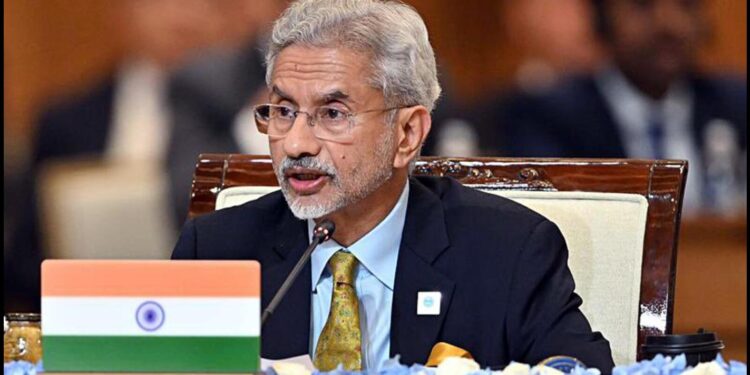Lagatar24 Desk
New Delhi: External Affairs Minister (EAM) S. Jaishankar called for the Bay of Bengal Initiative for Multi-Sectoral Technical and Economic Cooperation (BIMSTEC) to adopt a more ambitious and integrated approach amid significant global geopolitical shifts. His remarks came during the BIMSTEC foreign ministers’ meeting in Bangkok on Thursday, coinciding with heightened trade tensions following the US announcement of reciprocal tariffs.
Jaishankar highlighted the increasing relevance of regional collaboration, emphasizing India’s strategic role due to its extensive coastline and geographic links with five BIMSTEC members. He underscored India’s northeastern states as pivotal connectivity hubs, facilitating transportation and economic linkages through roads, railways, waterways, grids, and pipelines.
“Global uncertainties compel us to approach BIMSTEC ambitiously. The emerging global order is distinctly more regional and specific in its agendas,” Jaishankar stated. He further added, “The era when international systems were dominated by a few powers is behind us; our prospects now rely significantly on our collective regional initiatives.”
Addressing the scope of cooperation within BIMSTEC, Jaishankar suggested prioritizing shared areas like digital infrastructure, grid connectivity, maritime and land transportation, blue economy, business development, and ensuring food, health, and energy security. He also urged tackling pressing challenges such as cyber security, counter-terrorism, human trafficking, drug trafficking, and radicalisation collectively.
Jaishankar reiterated India’s commitment through the convergence of its ‘Act East’, ‘Neighbourhood First’, and MAHASAGAR policies, aiming for holistic regional growth and enhanced security across BIMSTEC countries. He also emphasized the necessity of preparing collaborative frameworks to efficiently handle global challenges such as climate change, pandemics, economic crises, and geopolitical conflicts.
Highlighting the transition towards regional self-sufficiency, he noted, “The contemporary world emphasizes self-help, with regions increasingly prioritizing immediate neighbours for essential supplies like food, fuel, and medical aid.”
Since India limited its participation in the South Asian Association for Regional Cooperation (SAARC) following political tensions in 2016, BIMSTEC—comprising Bangladesh, Bhutan, Myanmar, Nepal, Sri Lanka, Thailand, and India—has emerged as India’s preferred platform for regional cooperation. The upcoming BIMSTEC Summit, scheduled for April 4 in Bangkok, is anticipated to feature the signing of a significant maritime cooperation agreement.







